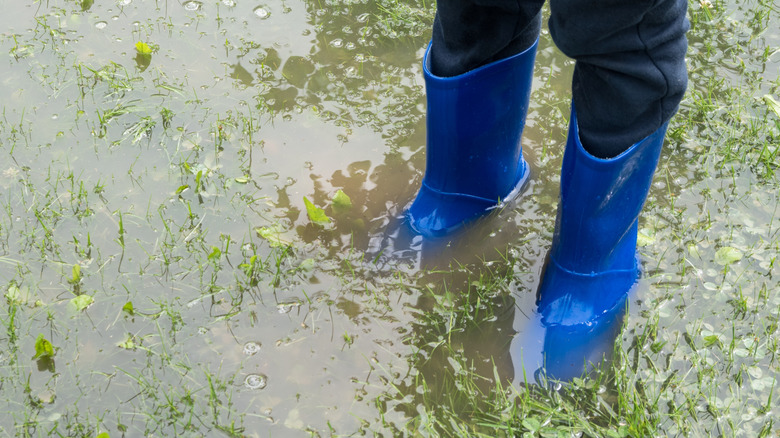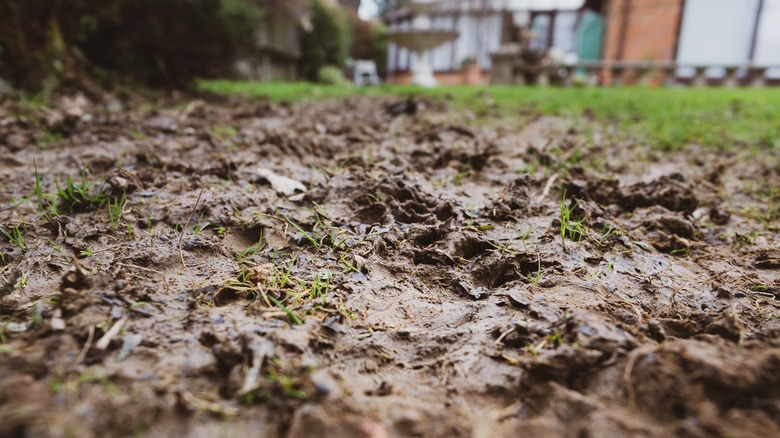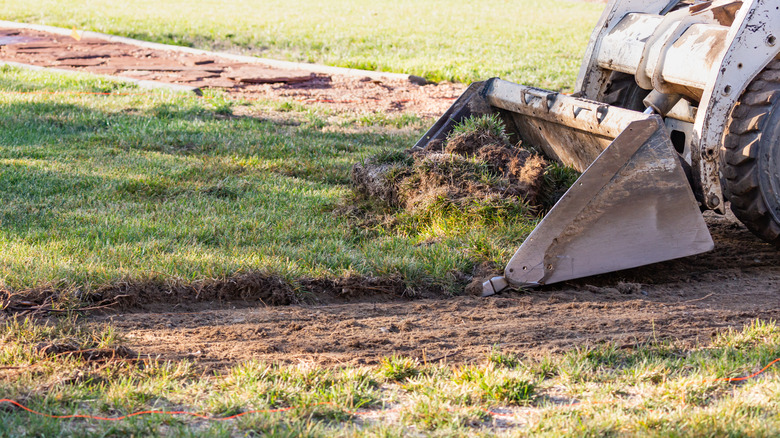Why You Should Consider Having Your Yard Graded
If the neighborhood kids show up in your backyard for a swim after a hard rain but you don't have a pool, it could be a sign that your yard needs some grading. A huge percentage of what goes into building and maintaining a home is about keeping water out, and that effort doesn't stop at the door. It's crucial to properly grade your yard to protect its foundation from water damage. In fact, even if your lawn just gets a little mushier than it should, it's worth investigating — it could cause foundation, pest, and other problems with your home.
If your yard (or your neighbor's) is moving water toward your home rather than away from it, you need to consider having your landscape regraded. In some cases it's nearly painless or even fun — you might get to run a Bobcat or a mini-excavator. But in other cases it can be extremely disruptive, challenging, and potentially expensive: It can cost $15,000 to $45,000 to level and regrade your yard. The idea of grading a yard around a home is to slope the property so that water will drain away from the house quickly. In most cases, that turns out to be a slope that exceeds 2%. If the specificity of that number is causing you to slowly back away from your browser, don't sweat it just yet. First you need to determine if your yard needs grading.
Signs that you might need to grade
If your yard needs to be graded, chances are you've already seen the signs. An hour after a rainfall, you shouldn't be standing in mud or a puddle of water a few feet from your home. It might very well mean that the slope needs to be adjusted to carry water away more efficiently. Signs include not just standing water and mud, but also prominent mold growth on the ground; saturated soil that's difficult to grow in (water can suffocate many plants by not allowing oxygen to get to the roots); icy areas on the ground in winter; ruts and furrows where mowers and other equipment sink in while moving across the property; and even septic system performance issues. Standing water will become a breeding ground for mosquitoes, can cause injuries via slippery walkways, and can even contribute to water intrusion into your home's foundation. There are even particular weeds you'll see when your lawn has poor drainage.
All of these issues can be exacerbated if your soil doesn't drain well. If you've had a septic system installed, your property has probably been subjected to a percolation test that determines how well soil can absorb water in various areas of the lawn. Yards that don't "perc" well — that is, don't drain well — may require different grading and other additional attention to keep water moving.
What's involved in grading and regrading
Before you take on a grading job as a DIYer or your own general contractor, it's good to be aware of the challenges and complexities that could become major problems. Some of these are pretty obvious: You probably don't have a skid steer to move the dirt around your property, so you might be contending with a substantial equipment rental expense. You'll also need some measure of soil compaction after grading, which can be as simple as watering the dirt or as complex as renting and learning how to use a soil compactor. And of course you'll be dealing with buried utilities — when there's a chance of cutting wires or water pipes, you have to treat it like a certainty. Call 811 and schedule for your utilities to be marked, and remember that erosion (caused by improper grading, among other things) can affect the depth of buried cables and pipes.
All of this you can learn over a long weekend, but some aspects of grading require the expertise and experience of a professional. Your project requires that you identify the grade of your property and the proper amount of rainfall for your situation and soil type; address erosion issues without creating new ones; move water off your property without flooding a neighbor's; and understand the correct composition of any fill dirt you introduce while grading. You'll also need to manage the landscaping that will be necessary after you raze your current lawn.


